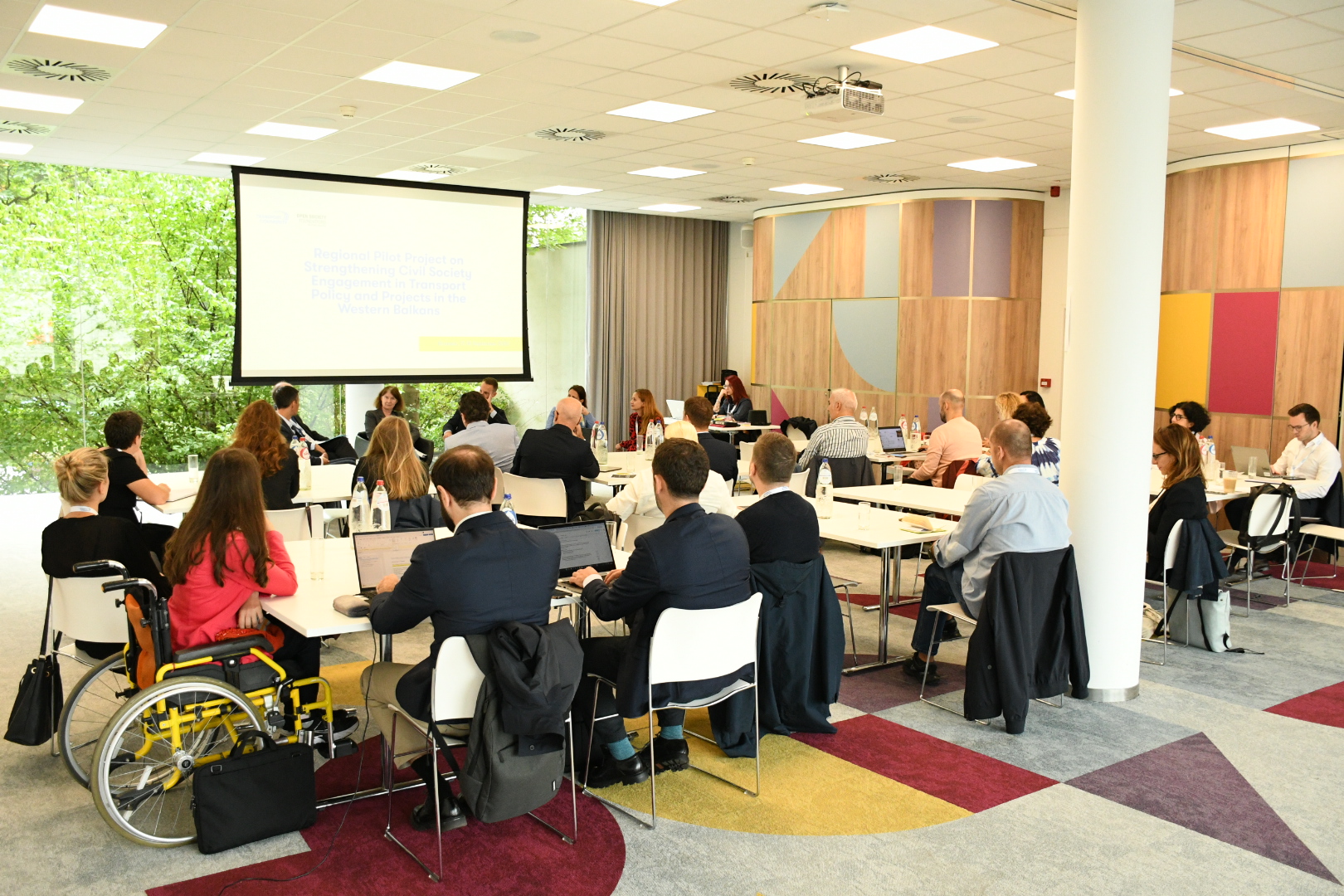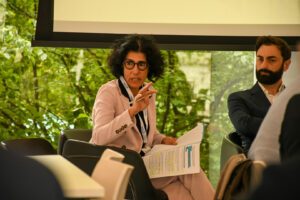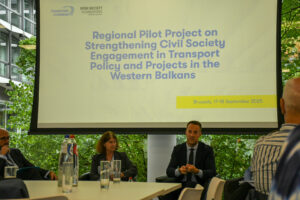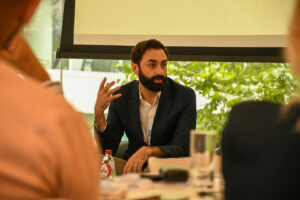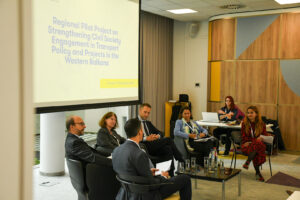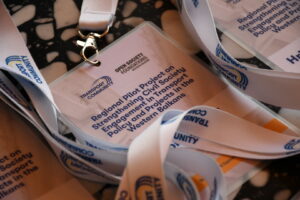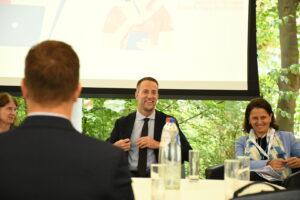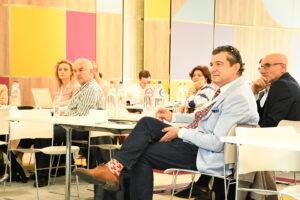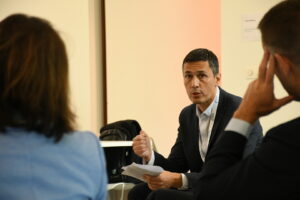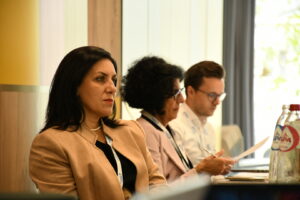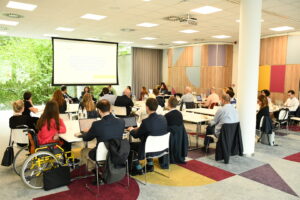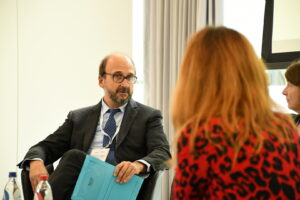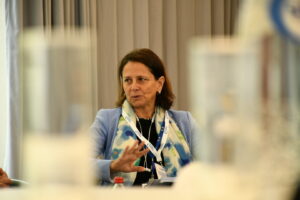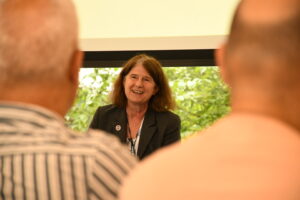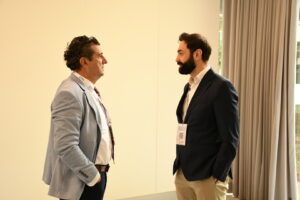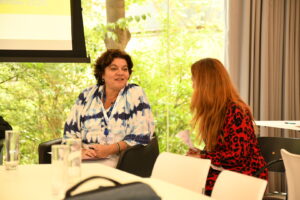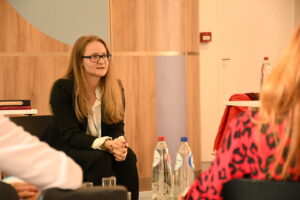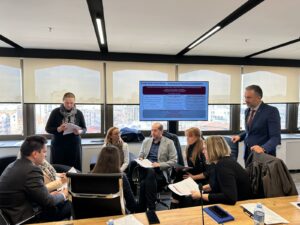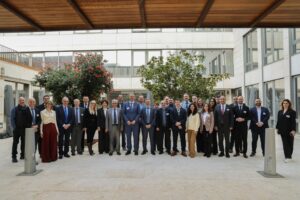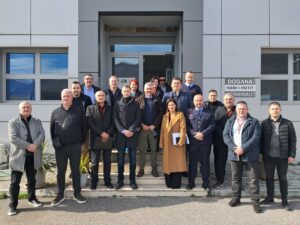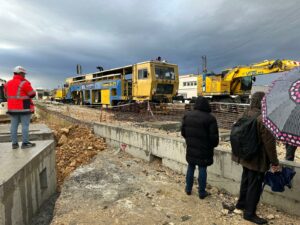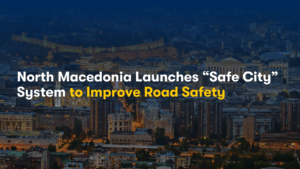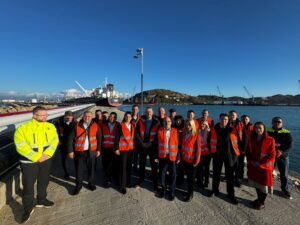BRUSSELS – Civil society organisations (CSOs) from across the Western Balkans and the EU gathered in Brussels on 18 September 2025 for a workshop aimed at strengthening their role in shaping transport policy and infrastructure projects.
Organised by the Open Society Foundations Western Balkans (OSF WB) and the Permanent Secretariat of the Transport Community (TCT Secretariat), in consultation with the European Commission’s DG MOVE and DG ENEST, the event worked on creating a structured civil society network in the Western Balkans transport sector to allow discussing challenges and shape future engagement in transport policy and infrastructure projects.
The workshop is a pilot project launched by the TCT Secretariat to foster cross-border collaboration, encourage participation of CSOs in policy-making, and develop further cooperation with EU and regional institutions.
Opening the event, Mr Matej Zakonjšek, Director of the TCT Secretariat, stressed that stronger involvement of civil society is crucial for transparent, sustainable, and inclusive transport development in the region. He was joined by Mr Miodrag Milosavljević (OSF Western Balkans), Mr Stefano Paci (DG MOVE), Ms Enrica Chiozza (DG ENEST), and Ms Sabine Trier (European Transport Workers’ Federation), who all underlined the need for dialogue between institutions and non-governmental actors in the sector.
Sessions throughout the day explored the role of CSOs in transport policy, opportunities for structured participation in infrastructure projects, which demonstrated how civil society can contribute to transparency, environmental oversight, and public consultation in large-scale investments.
The workshop also gave space to exchange knowledge between the Western Balkans region and EU, including Mr Franc Terihati from Albania’s Centre for Legal Empowerment, Ms Anastasiia Nahorna from Transport and Environment, and Mr Muhamed Krasniqi from Kosovo Association of Motorization AMRKS who shared lessons on engaging with decision-makers. Participants also worked in breakout groups to design practical solutions for improving CSO engagement in planning, environmental impact assessments, and policy reform. These ideas were later pitched to institutional representatives, laying the foundation for future cooperation.
By bringing civil society to the table, this initiative paves the way for a more inclusive transport sector in the Western Balkans – one that combines institutional expertise with community voices to ensure that policies and projects deliver sustainable benefits for citizens.

